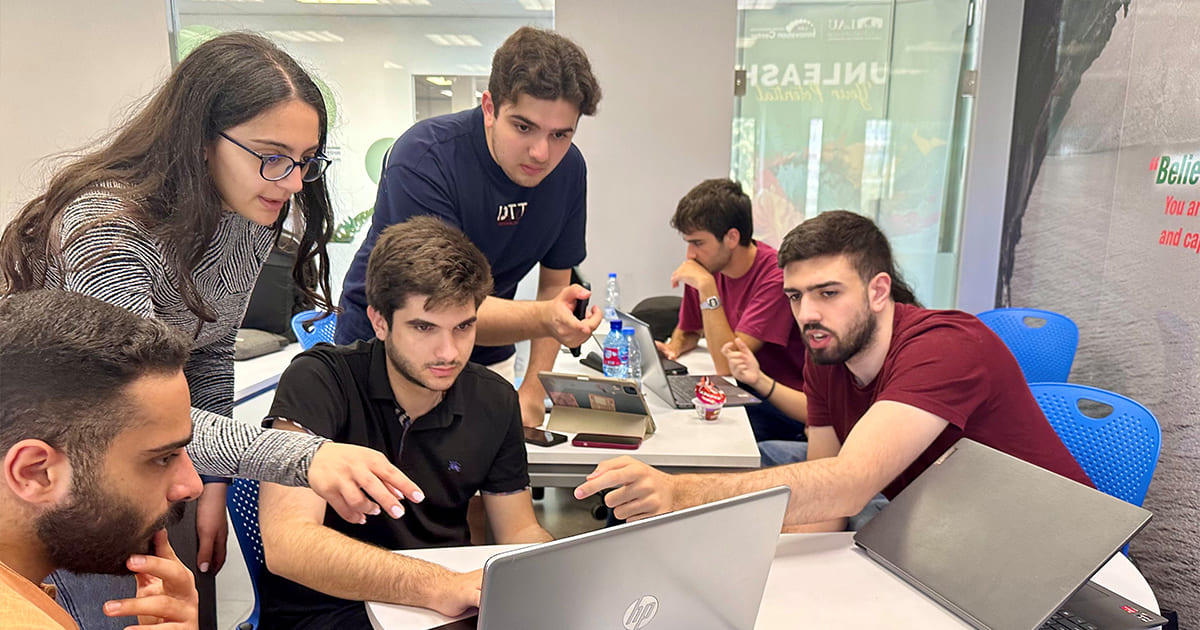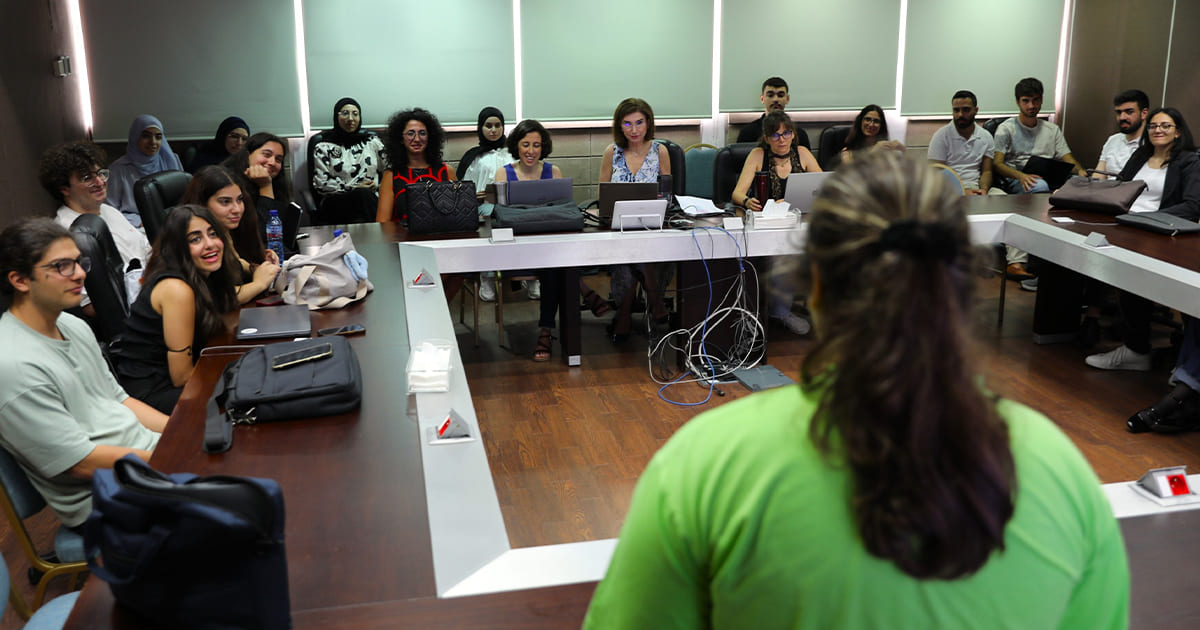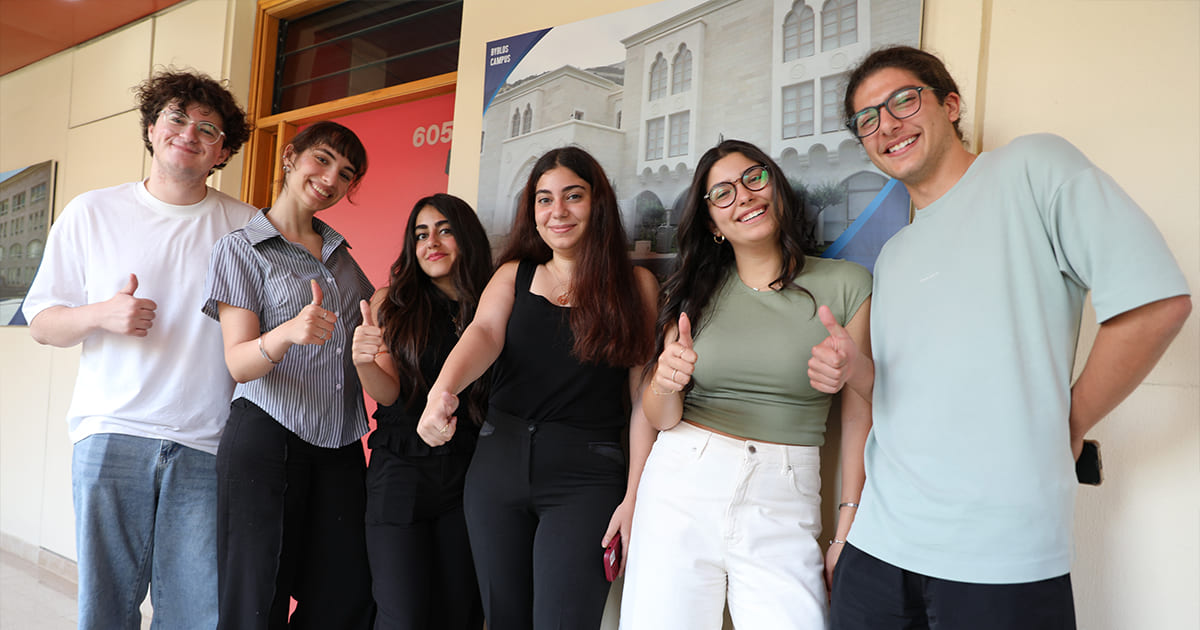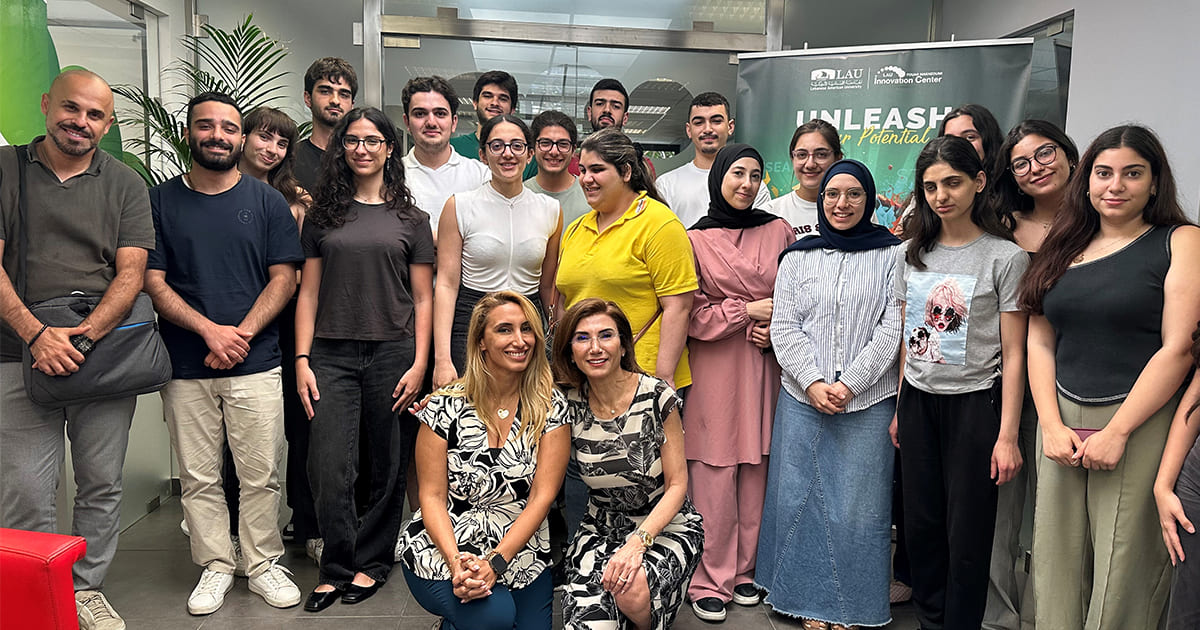Inside LAU’s Undergraduate Research and Discovery Program
LAU’s School of Arts and Sciences transforms junior-year students into confident, research-ready scholars.
Undergraduate education, at its best, is the launchpad for training students in established knowledge as well as preparing them to generate new knowledge themselves.
At LAU’s School of Arts and Sciences (SoAS), this philosophy is put into practice through its curricula and student-centered initiatives, most notably the Undergraduate Research and Discovery (URaD) Program, a selective, year-long program for junior students from all majors that enables them to pursue research and/or artistic projects under the close mentorship of a faculty member.
Over the years, the program has evolved, in line with the university’s Strategic Plan, from a set of workshops to a comprehensive set of high-impact experiences tailored to build the intellectual, technical and professional skills needed for conducting research.
By zeroing in on students preparing for their capstone or undergraduate research projects, URaD ensures that the skills acquired will feed directly into their academic trajectory, spanning advanced literature reviews and study design to developing full research proposals.
“What makes this program special is that it gives our students the confidence to take ownership of their ideas,” noted Professor and Associate Dean Sandra Rizk-Jamati. Being a researcher today, she added, requires more than methodological competence, as communication, adaptability and technological literacy have become increasingly central to scholarship compared to before.
“It really is all about answering questions as much as it is about learning that they can shape knowledge, not just absorb it,” she said.
For this reason, the program expanded its identity this year to include modules on effective communication, the ethical use of artificial intelligence and entrepreneurship, among other subjects. This comes in light of investing the school’s resources in students who are most likely to benefit from and contribute to a research-intensive environment.
Accordingly, each student is paired off with a faculty mentor through sessions that invite them to choose advisors whose work aligns with their interests, from proposal development through final reporting and presentation.
Students thus hone their research methods, sharpen their professional habits of dialogue, critique and revision, and experiment in an environment that values the process as much as the product.
“Academically, we aim to make them fluent in the approaches that many encounter only at the graduate level,” noted Dr. Rizk, “but professionally, they leave the program with concrete outputs that distinguish them in applications and job markets.”
For fresh psychology graduate Reine Mteir (BA ’25), the program provided the fundamental toolkit to develop her research. By comparing patterns in families with autistic children with those with neurotypical children, Mteir’s research investigates how parents’ ability to understand emotions affects the relationship between their attachment style and their child’s wellbeing.
“URaD has been a transformative milestone in my academic journey,” said Mteir. As a junior undergraduate, the program and the support of faculty, namely Assistant Professor and Chair of the Department of Psychology and Education Pia Tohme, turned her long-standing interest in research into tangible skills, confidence and a deeper passion for discovery so early in her career.
“[It] is more than a program; it is an inspiring initiative that has shaped me both personally and academically, and it will forever remain a major influence in shaping me into the psychologist I aspire to become,” she added.
Senior biology student Abraham Yazbeck found that “receiving mentorship from faculty and experienced professors with decades of knowledge in research was invaluable, immersive, and pivotal for my future career.”
His project looks at how a modified form of vitamin E, called PEGylated α-Tocopherol, may help fight ovarian cancer cells. To him, the sessions were incredibly helpful, but the importance lies in “the program’s creation of space for open, real conversations about what research looks like,” he said. “It gave us permission to ask the kinds of questions that usually go unspoken.”
Looking ahead, the next URaD cycle will guide students through structured research, with proposal presentations, which started in June 2025, followed by mid-year progress reports in November, and closing with final presentations in April 2026 at LAU’s Research Day.



